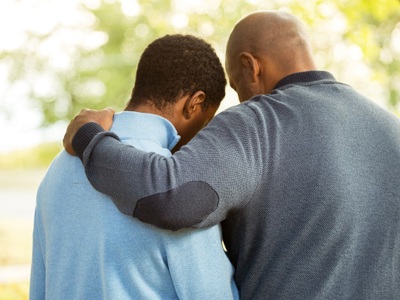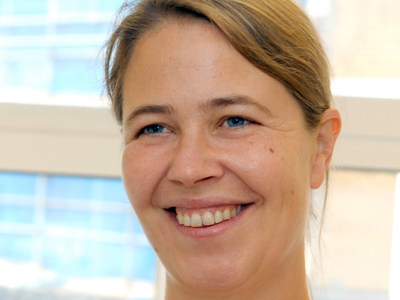
A bereaved family's human rights at inquests – why Baroness Lawrence must be heard
Merry Varney considers the barriers, which she claims are placed in front of bereaved families when trying to find out the truth of how their loved ones have died whilst in the care of the State, such as psychiatric hospitals or residential homes.
Posted on 12 March 2018
“the fact that you have bereavement and the fact the State don’t take that into account, and the word 'fight', is something I just think is really disgraceful; ... listening to you, both families, all I am hearing and is the word 'fight' and you shouldn’t have to be put in that position when the State is responsible for the death of your loved one.”
Last week I gave evidence to the Joint Committee on Human Rights, who are receiving evidence in relation to the enforcement of human rights in this country.
I represent victims and their families who have suffered alleged human rights violations in the UK; not the type of work many people think of when they hear the words 'human rights'.
The human rights my clients are seeking to enforce are ones that we don’t think we will ever need to rely upon until something horrendous happens.
When bereaved families contact me after the death of their loved one and they have concerns about what happened and want to know the truth and have accountability, it is the most basic of human rights that they seek to enforce – Article 2: the right to life.
It is with considerable sadness that my experience over the last 10 years, since being instructed the first time in relation to a death of a young man in police custody while a Trainee Solicitor at Liberty, leads me to conclude that the systems to enforce this basic human right in this country are fundamentally flawed.
At the heart of the broken system is Inquests. Inquests are the way in which unnatural deaths are publicly investigated in England & Wales.
If the Inquest system truly worked, on a national basis, every single one of us would be better off as it is designed to ensure risks to future lives are identified and changes made to protect us all.
They do this by establishing the truth about the circumstances of a death and record as a matter of public record matters which caused or contributed to that death. This is important for so many different reasons to everyone from the family to the wider population and even Government.
However, in my experience bereaved families often find themselves facing a system which, apart from some parts of the country who are lucky enough to have outstanding Coroners, only serves to compound the hurt they have suffered.
As the committee heard from the families who bravely recounted their experiences before them, families are not told uniformly that they might benefit from legal advice and representation at the Inquest and may not know they could be eligible to receive legal aid for such advice.
At the worst end of the spectrum this means an ill-informed Coroner (whether in law or in factual information or both) can hold an Inquest which has no chance whatsoever of establishing the truth for a bereaved family, let alone find who or what was accountable to save the lives of others.
For those who do find a lawyer, even though legal aid is technically available for Inquests where a person has died an unnatural death while in the care of a public body, the way legal aid for Inquests works is complicated and burdensome for a bereaved family.
For some families they may be able to find another source of funding, but for those I represent where the deceased is usually a vulnerable adult or child, this is rarely an option.
The complex application process involves providing detailed financial information and supporting evidence from all family members, and their partners. This can lead to a bereaved mother or father having to contact their estranged partner and parent of their deceased child despite there having been no contact for years. This is despite the LAA then very often agreeing not to impose the financial limits and granting legal aid.
Once the application has been made, the families have to wait….and wait….and wait….for a decision.
If they are lucky, the decision will be positive and if they are REALLY lucky, they will have had an understanding Coroner who did not list hearings or impose deadlines on them while the bereaved family were waiting for the decision.
If they are less lucky, they will have funding refused but with their loved one’s name spelt correctly and no inaccuracies in the decision letter, and they will be granted legal aid on appeal.
The unlucky ones are refused and left reliant on finding lawyers to act pro bono, or representing themselves in the Inquest - despite public bodies such as the NHS, having seemingly limitless public funds to pay for barristers and lawyers at the Inquest to protect their interests.
These bereaved family members will be required to question witnesses themselves and make legal submissions on scope, disclosure and whether or not there should be a jury amongst other critical issues without the benefit of any legal knowledge.
Unfortunately even for those who secure legal aid and have representation for the Inquest, the odds remain stacked against the bereaved family.
Relevant documents are usually held by multiple public bodies – some of whom try to charge a fee to families despite a Coroner having ordered disclosure and some of whom manage only to disclose the correct/full documents once an Inquest has already started despite having in-house lawyers and external lawyers involved for months beforehand.
Then there is the huge variation in the approach of different Coroners.
As I have said, some are outstanding. They are pro-active, fair, transparent and reasonable; many others are not.
Bereaved families are often forced to threaten judicial review (while crossing fingers and toes that the decision they are challenging changes so they do not have to face severe financial risks and go to Court) simply to get an Inquest opened, or for a lawful ‘Article 2 compliant’ Inquest to be held.
I could go on: there is no right to time off work to attend the Inquest of a loved one; travel and accommodation expenses are not routinely covered and of course there are no crèches in the Coroners Courts that I have attended.
All of the above is part of the process a bereaved family may have to go through if they want to know how and in what circumstances their loved one died whilst in the care of the State.
The victim, nor the family is at the heart of it and we are all considerably worse off because of it.
Baroness Lawrence learnt from her horrendous personal experience about Inquests, as did the families who so bravely and brilliantly spoke to the committee, as have my clients: it really is disgraceful. I hope that the committee, having heard the evidence first hand from families, can make the changes necessary so that all Coroner Courts across the whole country play their full role in protecting the lives of all of us.

Inquests – we know the problems but how do we solve them?
In her second blog, following her evidence to the Joint Committee on Human Rights, partner Merry Varney details the changes she believes would be the start of reducing the barriers families facing an inquest into the death of a loved one whilst in the care of the State


